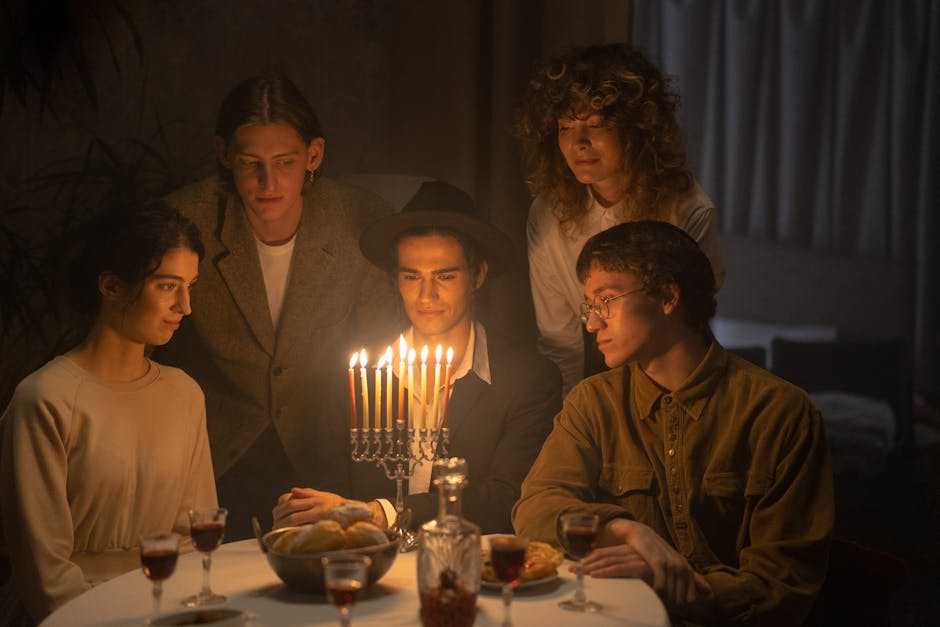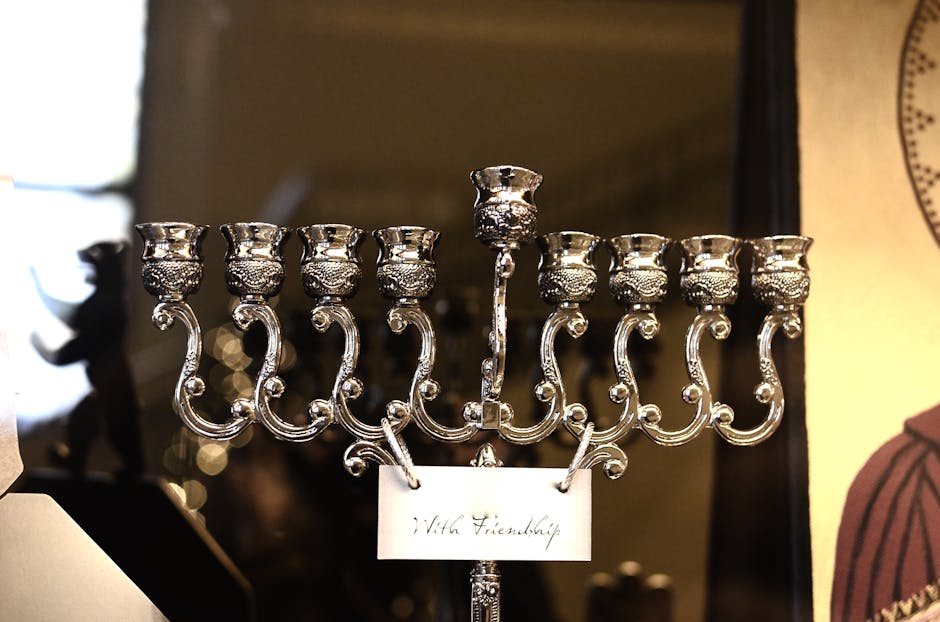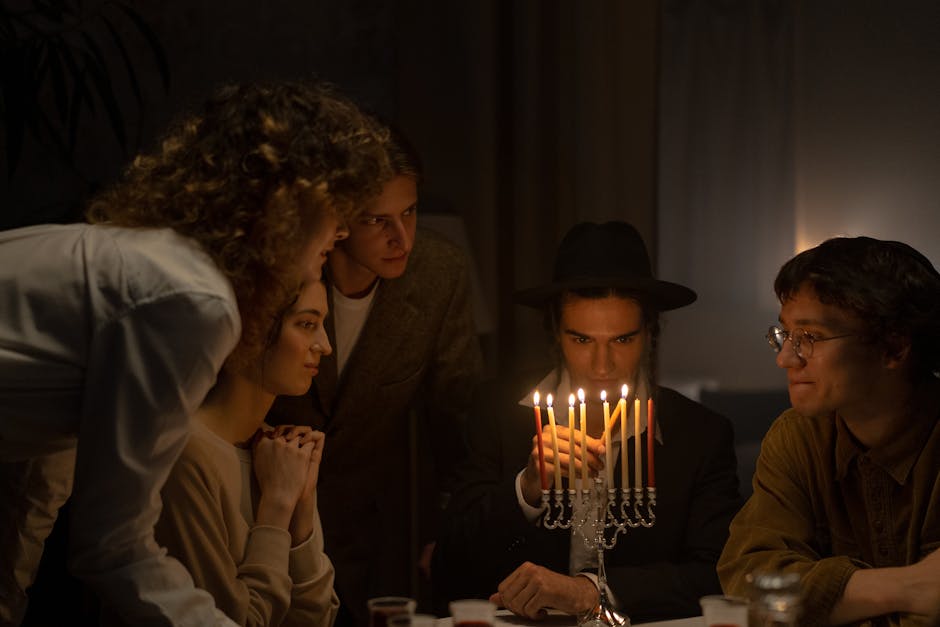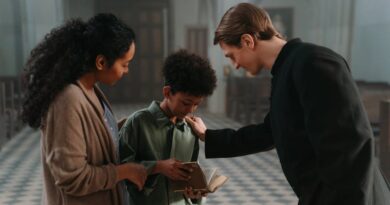How to Celebrate Faith Milestones: A Comprehensive Guide
Faith milestones hold a special place in the hearts of believers around the world. These significant moments mark important events in one’s spiritual journey, commemorating achievements, growth, and deepening relationships with one’s faith. Whether it’s a baptism, bar mitzvah, confirmation, or another religious ceremony, celebrating these milestones plays a vital role in strengthening personal beliefs and fostering a sense of community.
In this comprehensive guide, we will explore the various ways individuals and communities can celebrate faith milestones. From traditional rituals to modern interpretations, we will delve into the significance of these ceremonies, the customs associated with them, and the impact they have on individuals and communities. Join us as we embark on a journey through the rich tapestry of faith traditions and explore the timeless practices that continue to shape our spiritual lives.
The Importance of Faith Milestones

Faith milestones serve as significant markers in one’s spiritual journey, signifying growth, commitment, and devotion to one’s beliefs. These ceremonies often involve rites of passage that mark a transition from one stage of life to another, symbolizing a deeper connection to one’s faith community and the divine.
For many individuals, faith milestones are a way to publicly declare their beliefs and reaffirm their commitment to their spiritual path. These ceremonies provide an opportunity for introspection, reflection, and renewal, allowing individuals to connect with their faith on a deeper level and strengthen their bond with their community.
Moreover, faith milestones help to create lasting memories that individuals can look back on with fondness and pride. These ceremonies often involve family and friends, creating a sense of unity and support that can be cherished for years to come. By celebrating these milestones, individuals are able to honor their beliefs, connect with their heritage, and create a sense of continuity with the past.
Types of Faith Milestones

Faith milestones come in various forms and are celebrated across different religions and cultures. Some of the most common types of faith milestones include:
Baptism
Baptism is a sacrament in Christianity that marks the entry of an individual into the Christian faith. This ceremony typically involves the sprinkling or immersion of water as a symbol of purification and rebirth. Baptism is often performed on infants but can also be administered to adults who wish to join the Christian community.
Bar/Bat Mitzvah
The bar mitzvah (for boys) and bat mitzvah (for girls) are coming-of-age ceremonies in Judaism that mark the transition from childhood to adulthood. During these ceremonies, the young person is called to read from the Torah and take on new responsibilities within the Jewish community.
Confirmation
Confirmation is a sacrament in the Catholic and Orthodox Christian traditions that signifies the strengthening of one’s faith and commitment to the Church. During the confirmation ceremony, individuals receive the Holy Spirit through the laying on of hands by a bishop or priest.
Wedding
A wedding is a sacred ceremony in many faith traditions that celebrates the union of two individuals in marriage. This milestone marks the beginning of a new chapter in the couple’s lives and is often accompanied by religious rituals and customs.
Ordination
Ordination is a ceremony in which individuals are consecrated and set apart for religious service within their faith community. This milestone is common in many religious traditions, including Christianity, Judaism, Islam, and Buddhism.
Celebrating Faith Milestones: Customs and Traditions

Each faith milestone is accompanied by its own set of customs and traditions that reflect the beliefs and values of the community. These rituals are often steeped in history and symbolism, adding depth and meaning to the celebration. Let’s explore some of the common customs associated with celebrating faith milestones:
Symbolic Gestures
Many faith milestones involve symbolic gestures that represent spiritual truths and values. For example, the lighting of a candle may symbolize the presence of the divine, while the exchange of rings in a wedding ceremony signifies the eternal bond between two individuals.
Prayer and Reflection
Prayer and reflection are central components of most faith milestones, allowing individuals to connect with the divine and seek guidance and strength. These moments of introspection provide a sense of peace and spiritual renewal, helping individuals to reaffirm their faith and commitment to their beliefs.
Community Involvement
Community involvement is a key aspect of celebrating faith milestones, as these ceremonies often bring together family, friends, and other members of the faith community. By celebrating these milestones in the company of others, individuals are able to draw strength and support from their community, creating a sense of unity and belonging.
Feasting and Festivities
Feasting and festivities are common elements of many faith milestones, as these celebrations are often accompanied by food, music, and dance. These joyful occasions allow individuals to come together in a spirit of camaraderie and celebration, strengthening bonds of friendship and kinship.
Common Misconceptions About Faith Milestones

Despite the rich history and significance of faith milestones, there are several common misconceptions that surround these ceremonies. Let’s debunk some of the myths and misunderstandings associated with celebrating faith milestones:
Only for the Religious
One common misconception about faith milestones is that they are only for the religiously observant. In reality, faith milestones can be meaningful and impactful for individuals of all backgrounds, regardless of their level of religious practice.
One-Size-Fits-All
Another misconception is that faith milestones are one-size-fits-all ceremonies that must adhere to strict traditions and customs. In truth, faith milestones can be celebrated in a variety of ways that are tailored to the individual’s beliefs, values, and preferences.
Outdated and Irrelevant
Some may view faith milestones as outdated and irrelevant in today’s modern world. However, these ceremonies continue to hold significance for many individuals, providing a sense of continuity, tradition, and spiritual connection that is timeless and enduring.
FAQs About Celebrating Faith Milestones
Q: Do you have to be religious to celebrate a faith milestone?
A: While faith milestones are often associated with religious traditions, individuals of all backgrounds can find meaning and value in celebrating these important moments in their lives.
Q: How can I incorporate modern elements into a traditional faith milestone ceremony?
A: There are many ways to infuse modern elements into a traditional faith milestone ceremony, such as incorporating contemporary music, art, or rituals that hold personal significance for the individual or community.
Q: What is the significance of community involvement in celebrating faith milestones?
A: Community involvement plays a vital role in celebrating faith milestones, as it provides support, encouragement, and a sense of belonging for individuals as they mark important moments in their spiritual journey.
To Wrap Things Up
Celebrating faith milestones is a deeply personal and meaningful experience that allows individuals to connect with their beliefs, values, and community. Whether it’s a baptism, bar mitzvah, confirmation, wedding, or ordination, these ceremonies serve as important markers in one’s spiritual journey, offering a sense of continuity, tradition, and spiritual renewal.
As we reflect on the various types of faith milestones, the customs and traditions associated with them, and the common misconceptions that surround these ceremonies, it becomes clear that celebrating these milestones is a powerful way to honor one’s faith, connect with others, and create lasting memories that will be cherished for years to come.
So, as you embark on your own journey of faith and celebration, remember to embrace the significance of these milestones, engage with the traditions and customs that hold meaning for you, and involve your community in the joyous festivities that mark these important moments in your life.




